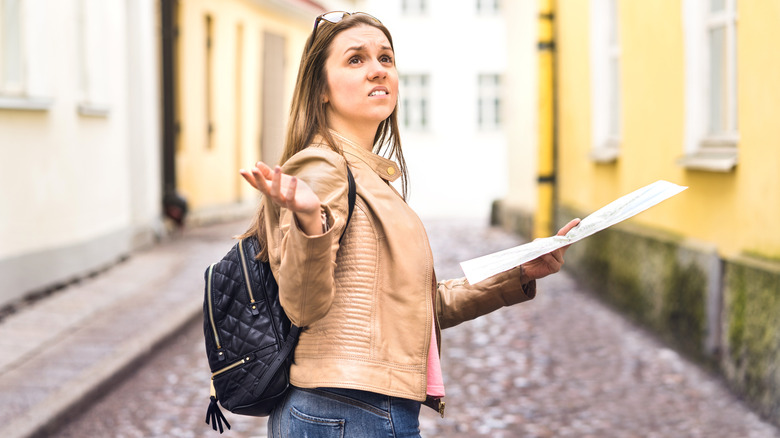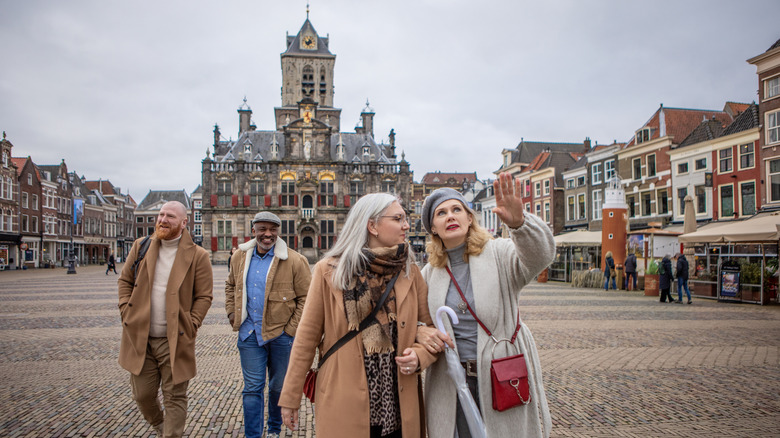Ditch One Common American Tourist Habit For A Far Superior Experience In Europe, Per Rick Steves
In the Netflix show "Emily in Paris," Emily, the American marketing executive played by Lily Collins, relocates to the French capital, but she doesn't seem to easily win over the locals. Instead, she exhibits the cringey tourist habit that Rick Steves calls the "Ugly American," such as when she exclaims over lunch, "Ugh, this steak isn't cooked at all!" and demands the chef cook it longer because — as is often said in the U.S. — "the customer is always right."
"Ugly American" is a term coined from the title of a 1958 novel about Americans working in Southeast Asia. Though some characters are committed and genuine in their desire to help local people, others are inconsiderate and ill-informed about the people they are supposed to help. Sadly, the "Ugly American" has become a stereotype that describes a subset of Americans abroad who are arrogant, critical of unfamiliar customs, and expect things to operate as they do back home.
Yes, it can be nerve-racking to visit a new country, especially when you don't speak the language. However, complaining and fixating on the unpleasantness and difficulties of a foreign place can, as Steves writes in a Facebook post, trigger a vicious downward spiral that leads to fewer smiles, worse service, and less fun — which causes sour moods and ruined vacations. Thankfully, Steves has many travel tips to ensure you have the best time in Europe (or anywhere else on this planet).
Tips to have the best time in Europe (and elsewhere)
"Ugly Americanism is a disease, but fortunately there is a cure," says Rick Steves. The travel guru suggests a change in attitude by celebrating similarities and differences in cultures. Try the black pudding in Scotland — it's okay to not finish it if you don't like it. Or in Spain, you might be famished because many local restaurants don't open until 8 p.m. — have light snacks throughout the day to tie you over instead of complaining. Another way to shift your attitude is by becoming more observant. If people speak quietly on trains and in restaurants, do the same. If people are lining up, follow suit. Blending in makes you less likely to be treated as the "Ugly American." It's also a good practice to keep you safe from pickpockets and scammers who target unaware travelers who draw attention to themselves.
Steves' tip for being a "good traveler" is to interact with the locals. So, read up on the country you are visiting before your trip. Scan a few newspaper headlines to get your bearings on the current events. Practice saying "hello" and "thank you" in the local language. This way, you can greet a local in their language and have something to discuss besides the weather. Many Europeans are crazy about soccer (or "football," as it's known locally), so catch a match or go to the pub to root for the local team. If you are a churchgoer, go to a local parish — you'll be pleasantly surprised by how welcoming they are. Skip the tourist traps and stroll in a park to get the vibe of the neighborhood. Bonus secret tip to see everyday European life: Avoid the crowds and visit during winter, when many European cities get a respite from tourists and regain their original characters.

